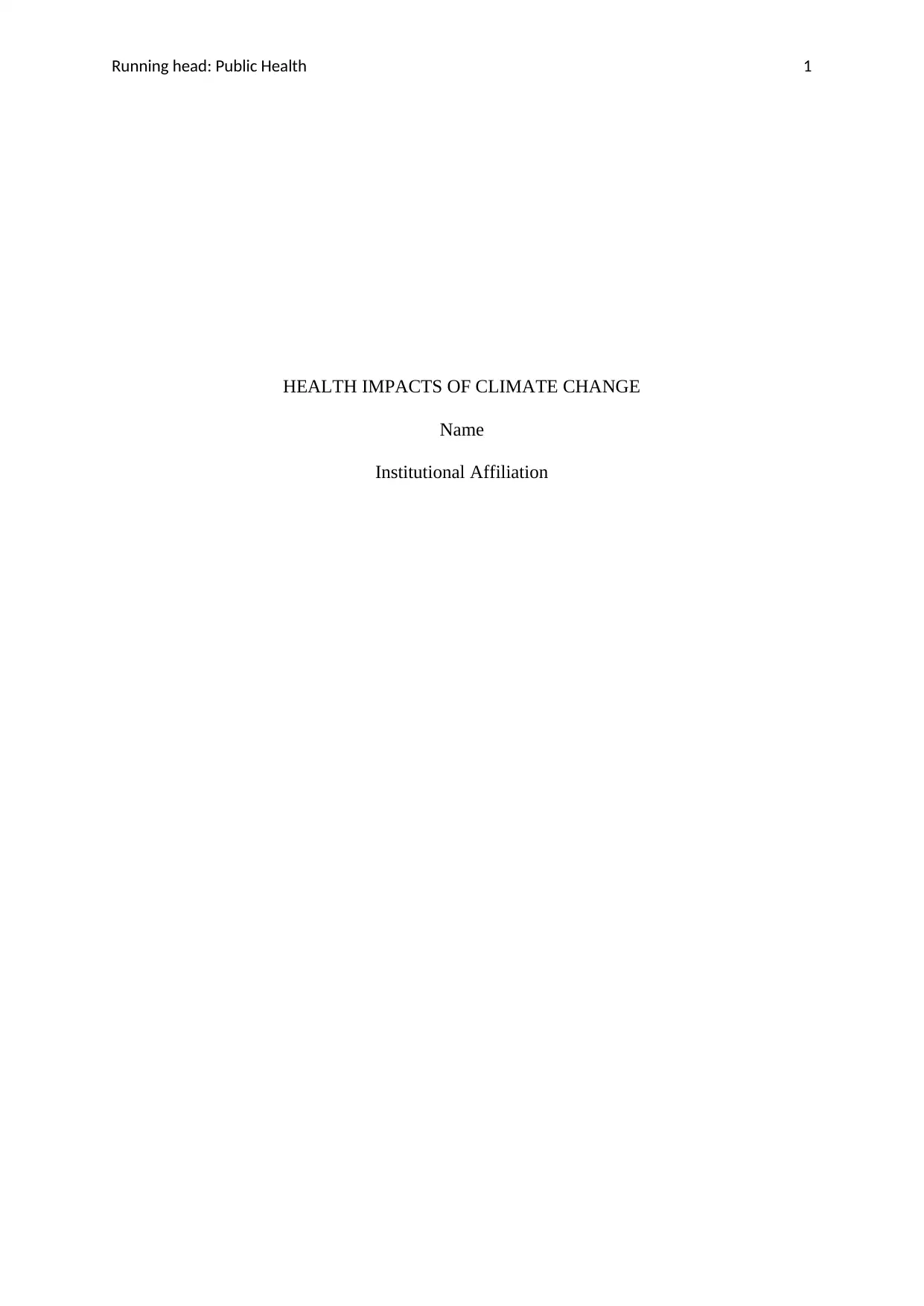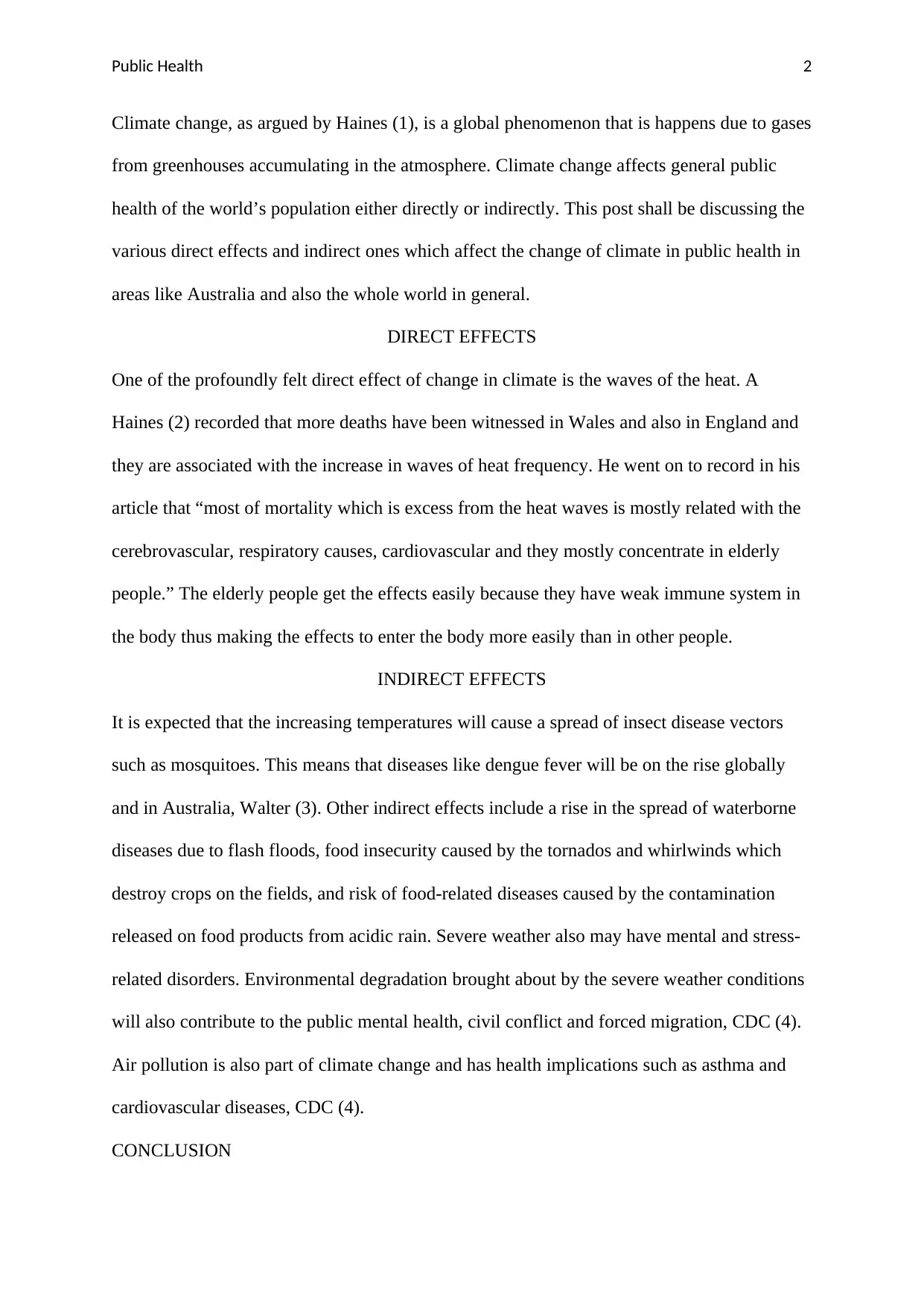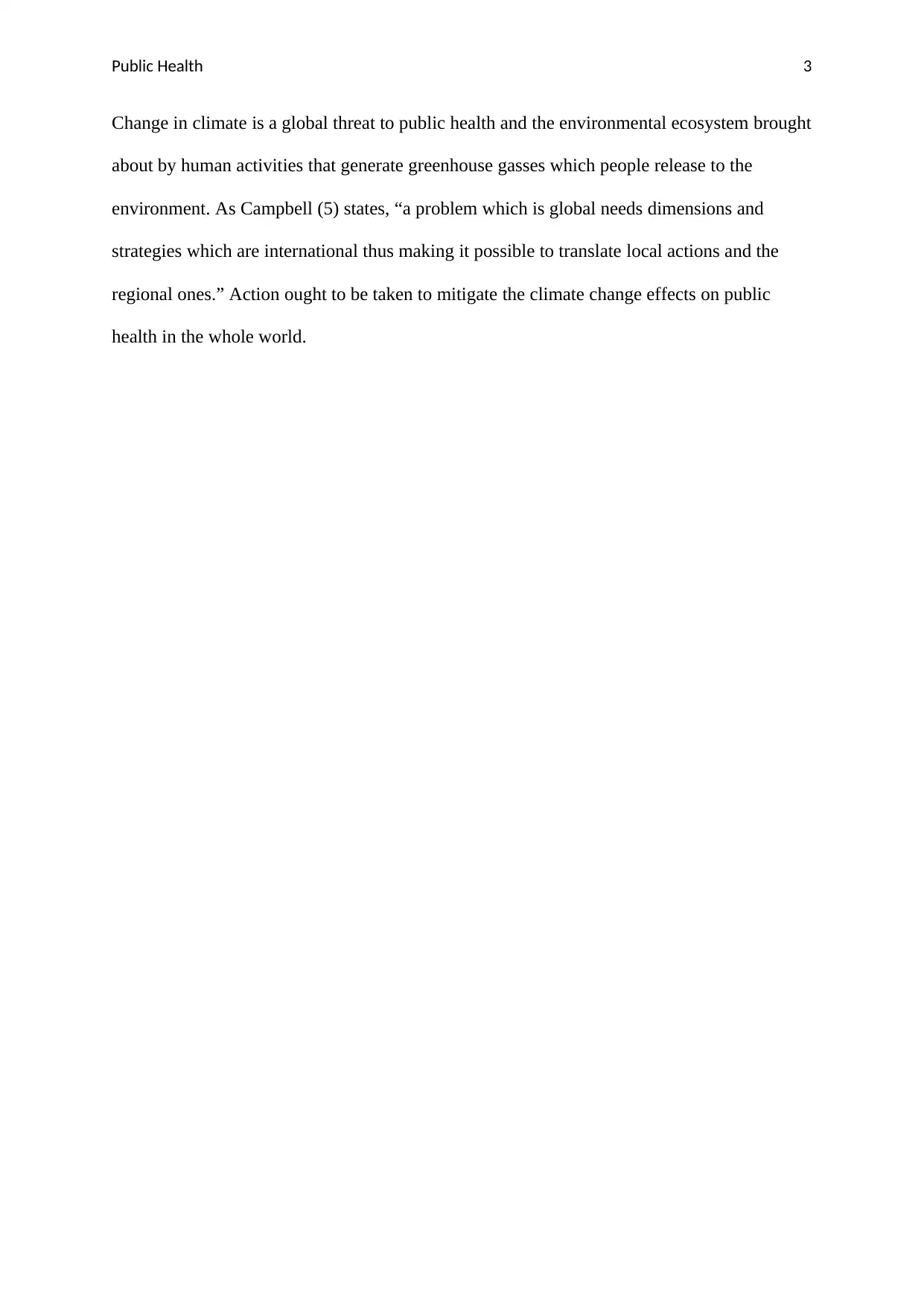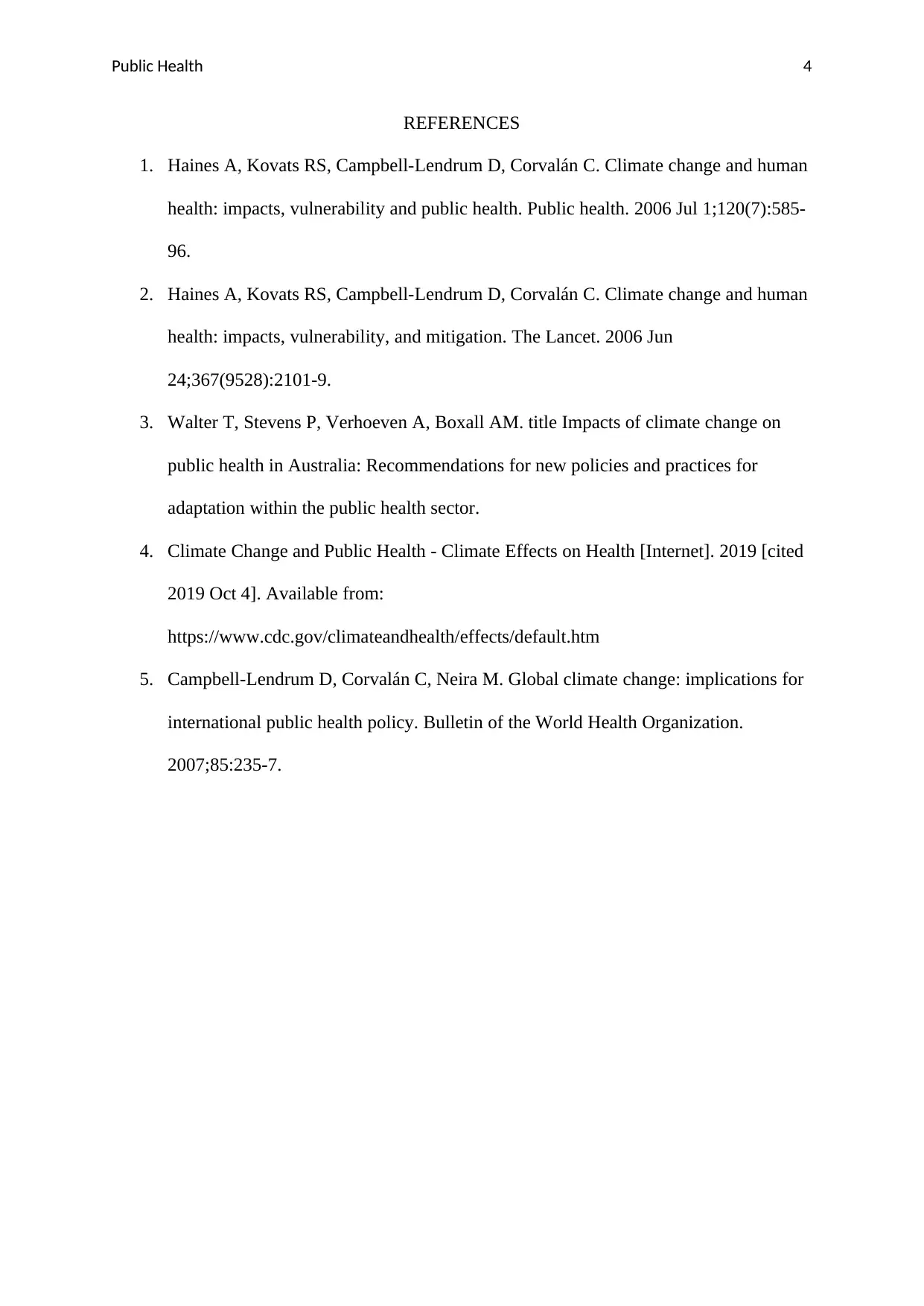Climate Change and Public Health: Direct and Indirect Impacts
VerifiedAdded on 2022/10/02
|4
|624
|346
Report
AI Summary
This report delves into the profound impacts of climate change on public health, exploring both direct and indirect consequences. It highlights the direct effects, such as heat waves, and their association with increased mortality, particularly among the elderly. Indirect effects, including the spread of insect-borne diseases, like dengue fever, waterborne diseases due to flooding, food insecurity, and mental health disorders, are also analyzed. The report emphasizes the global nature of the problem, the role of human activities generating greenhouse gases and calls for international action to mitigate the adverse effects of climate change on public health, referencing various studies and articles to support the arguments. The report also briefly touches upon the interaction between AIDS epidemic and climate change in southern Africa and its impact on food security.
1 out of 4











![[object Object]](/_next/static/media/star-bottom.7253800d.svg)